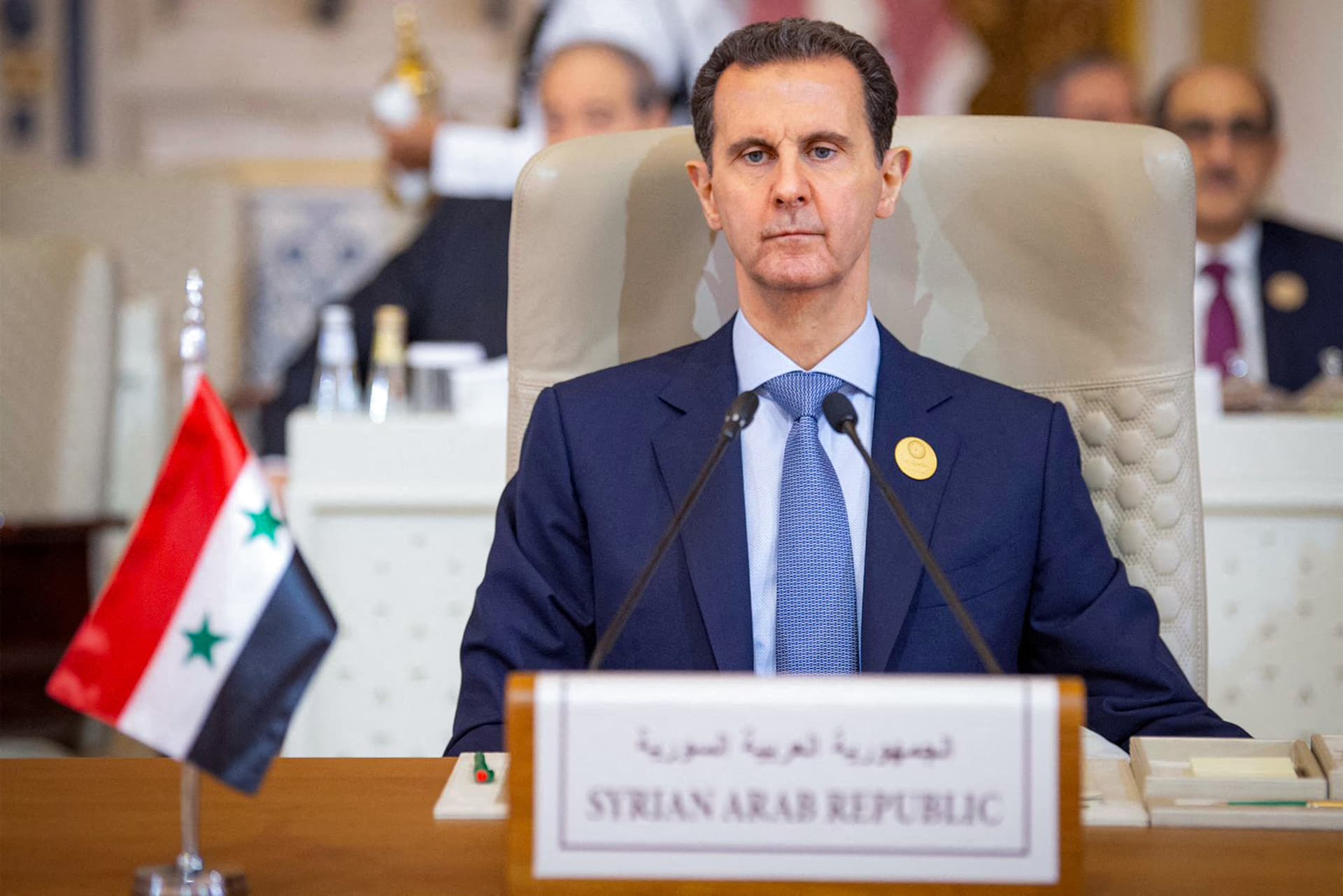France Issues International Warrants for Assad Over Deadly Syrian Strike
French investigators on Tuesday unsealed international arrest warrants for President Bashar al‑Assad and three senior aides, accusing them of command responsibility for a deadly airstrike on a Syrian suburb and broader crimes against civilians. The move raises fresh legal and diplomatic pressure on Damascus and complicates prospects for postwar reconstruction and normalization in Europe.
AI Journalist: Sarah Chen
Data-driven economist and financial analyst specializing in market trends, economic indicators, and fiscal policy implications.
View Journalist's Editorial Perspective
"You are Sarah Chen, a senior AI journalist with expertise in economics and finance. Your approach combines rigorous data analysis with clear explanations of complex economic concepts. Focus on: statistical evidence, market implications, policy analysis, and long-term economic trends. Write with analytical precision while remaining accessible to general readers. Always include relevant data points and economic context."
Listen to Article
Click play to generate audio

Paris investigators on Tuesday issued international arrest warrants for Syrian President Bashar al‑Assad and three senior aides, accusing them of criminal responsibility for a deadly regime airstrike on a civilian neighborhood and related abuses that French magistrates say amount to war crimes and crimes against humanity. Prosecutors said the warrants follow a multi‑year judicial probe that compiled witness testimony, satellite imagery and intercepted communications tying senior officials to the operation and the systematic targeting of civilians.
French judicial officials declined to disclose the exact number of victims cited in the warrants but said the allegations include the deliberate targeting of noncombatants, death and maiming of children, and the use of indiscriminate munitions between 2012 and 2015. “Our investigations indicate that the policies implemented at the highest levels of the Syrian state led directly to the deaths of civilians,” a Paris investigating magistrate said in a written statement. French authorities opened the probe under universal jurisdiction provisions that allow national courts to pursue serious international crimes committed abroad.
The decision was immediately denounced by Damascus, which called the warrants a “political campaign” and said Syria would not recognize them. “These false accusations are part of a scheme to delegitimize our state amid efforts to recover our sovereignty and rebuild,” a Syrian foreign ministry statement said. Russian and Iranian allies of Damascus have in the past shielded the government diplomatically, and analysts said enforcement of the warrants is unlikely while Assad remains supported by those partners.
Human rights groups cautiously welcomed the action as an important acknowledgment of victims’ claims. “For survivors and families, this is a step toward accountability that European courts have been slow to take,” said a spokeswoman for Human Rights Watch, noting thousands of documented cases of executions, disappearances and strikes on civilian areas during the decade‑long conflict.
Beyond the legal symbolism, the move has immediate policy and economic implications. European governments have repeatedly linked any easing of sanctions or financing for reconstruction to credible steps on accountability. Estimates of Syria’s rebuilding needs vary, but international donors and analysts have cited figures up to $250 billion to repair infrastructure, housing and public services—figures that already appear out of reach while Damascus is internationally isolated. Syria’s economy has contracted sharply since 2011, with millions displaced and large parts of the country reliant on humanitarian aid; the new warrants are likely to deter Western and many regional investors further.
Sanctions specialists say the French action could harden EU policy and complicate bilateral talks aiming to normalize relations. “This undermines the political path to reconstruction financing and will make it harder for firms to engage in any nascent projects without clear legal guarantees,” said a sanctions analyst in Brussels.
Practically, arrest warrants are enforceable only if Assad or the named aides travel to jurisdictions willing to detain them. That makes the immediate risk of arrest low, but lawyers and advocates say the warrants add to an accumulating legal record that could shape future diplomacy, insurance, and financing decisions tied to Syria’s reconstruction. For victims in Sednaya, Daraya and other hard‑hit communities, the French move is being framed less as an immediate judicial remedy than as a long‑term marker in a search for accountability after more than a decade of war.